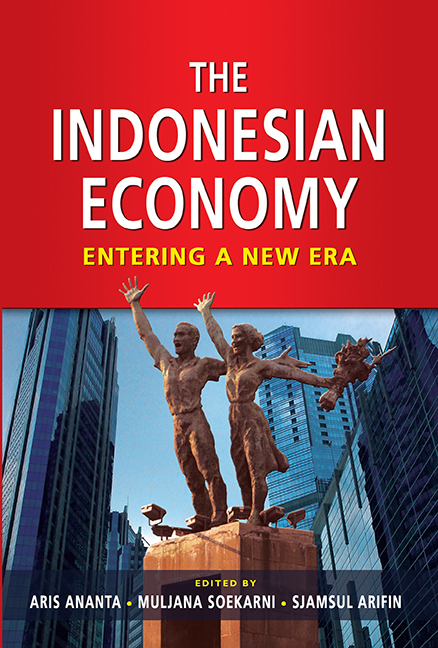Book contents
- Frontmatter
- Contents
- List of Tables
- List of Figures
- Message from the Deputy Governor of Bank Indonesia
- Message from the Director of the Institute of Southeast Asian Studies
- Foreword
- Preface
- Contributors
- PART I INTRODUCTION
- 1 Economic Challenges in a New Era
- 2 Government Economic Policies since the Beginning of the New Order Era
- PART II MONETARY AND FISCAL POLICIES
- PART III DOMESTIC ECONOMY
- PART IV SEARCH FOR NEW PARADIGMS
- Index
2 - Government Economic Policies since the Beginning of the New Order Era
from PART I - INTRODUCTION
Published online by Cambridge University Press: 21 October 2015
- Frontmatter
- Contents
- List of Tables
- List of Figures
- Message from the Deputy Governor of Bank Indonesia
- Message from the Director of the Institute of Southeast Asian Studies
- Foreword
- Preface
- Contributors
- PART I INTRODUCTION
- 1 Economic Challenges in a New Era
- 2 Government Economic Policies since the Beginning of the New Order Era
- PART II MONETARY AND FISCAL POLICIES
- PART III DOMESTIC ECONOMY
- PART IV SEARCH FOR NEW PARADIGMS
- Index
Summary
CHAOTIC ECONOMIC DEVELOPMENT, 1945–66
When Sukarno and Hatta declared Indonesian independence in 1945, people cherished the hope that in the atmosphere of independence, development efforts could be initiated to raise their standard of living and bring progress for them. The abundance of natural resources and favourable climate and geography, together with a large labour force, would allow for a large potential for development in Indonesia.
In colonial times this potential was only developed in the interest of the colonizers through the concentration on agriculture, especially plantations, with most of the products sold abroad. As a result, the structure of the Indonesian economy became unbalanced because of too great an emphasis on the heavily export-oriented agriculture.
During the decades known as the Old Order era (1945–66), the economy was a servant to politics. Rational economic principles were unacknowledged and ignored. Furthermore, domestic and foreign resources were squandered. The direct result of these conditions was a drastic decline in the economy, accompanied by hyperinflation which reached more than 600 per cent in 1966. Shortages were felt in many sectors, such as food, textiles, and tools for production, spare parts, and raw materials. Moreover, the irrigation system, plantations, mines, factories, road networks, electricity, drinking water, railways, airports, harbours, and telecommunication facilities were neglected. During that period, food production did not keep pace with population growth. Export proceeds decreased significantly, while imports were paid for by ever increasing loans from abroad.
Consequently, as the economy declined, employment opportunities became fewer. The only ever expanding field of work was government service. The increasing number of civil servants pushed up routine expenditures. However, revenues available in real values were not proportional to the number of people employed, resulting in the declining real income of civil servants. As a result, the annual rate of economic growth during 1961–66 was very low (2.0 per cent) and slightly lower than the annual rate of population growth (2.1 per cent). Income per capita had become stagnant.
This chapter aims to provide a brief introduction to government economic policies after the Old Order era. The next section elaborates on government policies and performance during the New Order era (1966–98), which were a radical change from the previous Old Order era. The section is then followed by one on policies during the 1997–98 Asian financial crisis, which resulted in a total crisis in Indonesia.
- Type
- Chapter
- Information
- The Indonesian EconomyEntering a New Era, pp. 28 - 60Publisher: ISEAS–Yusof Ishak InstitutePrint publication year: 2011



